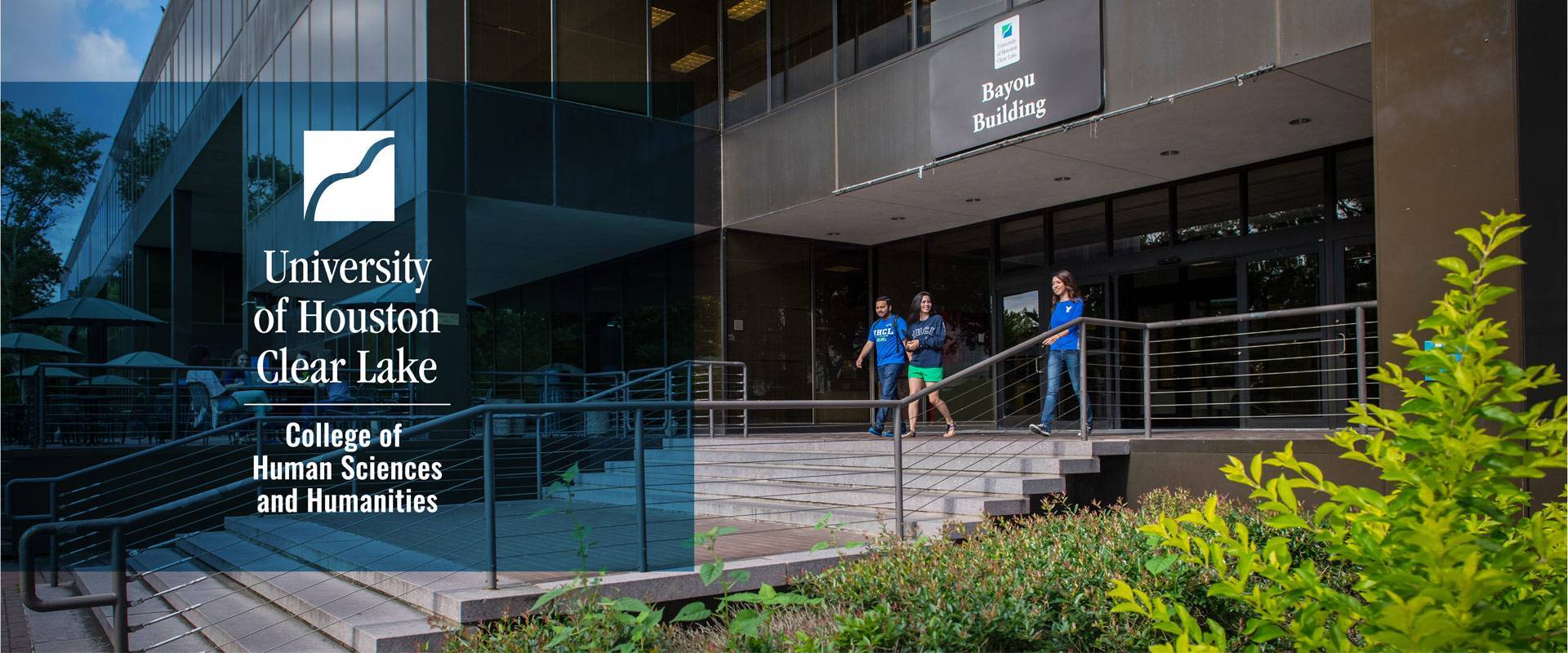Anthropology students, prof travel to Texas border to study migrants' issues
February 12, 2020 | UHCL Staff

Professor of Anthropology and Cross-Cultural Studies Christine Kovic and three University of Houston-Clear Lake students, Natalia Mendez, Hayley Bullock
and Kelly Hornsby, traveled to cities along Texas’ southern border to continue studying
issues facing migrants seeking asylum in the United States.
“Anthropologists need field experience to utilize the skills they’re learning in the
classroom in real scenarios and see what’s happening firsthand,” Kovic said.
Kovic, senior anthropology majors Natalia Mendez and Hayley Bullock and cross-cultural and global studies master’s student Kelly Hornsby traveled to Falfurrias, Texas to meet with Eddie Canales, director
of the South Texas Human Rights Center to learn more about his humanitarian initiatives for migrants, as well as helping
to reduce the numbers of missing and dead along the border.
“They work to keep track of the number of missing and dead in that area, helping authorities
to pinpoint the areas where remains are found and return them to families,” Kovic
said. “Close to 500 people were reported missing in Brooks County in the past 18 months.
There is a border patrol checkpoint on Highway 281, and people attempting to walk
around it get lost and die of exposure. That area is very isolated. In the past 15
years, 789 remains have been recovered.”
Mendez, who is also an officer in Cross-Cultural and Anthropology Student Association (CASA), and the Lambda Alpha Honors Society, said that they left Falfurrias and went to McAllen to work with the Catholic Charities
Respite Center. “This is a place for detainees to go when they are released to get
showers, food and a change of clothes,” she said. “It’s a place for them to regroup,
get to bus stations and they help with finding sponsors after they are released.”
They also worked with Team Brownsville, a nonprofit organization that offers assistance
to asylum seekers along international bridges. “We helped them transport materials
as needed to refugee camps,” Mendez said. “Policies continue to change regarding the
migrants, so we have to keep adjusting. People who are seeking asylum must wait on
the Mexican side, sometimes for months in very difficult conditions.”
Kovic added that it was a very important time to take students to the border to see
the situation for themselves. “It’s very educational for students to learn about asylum-seeking
families who are being detained,” she said. “One of the amazing things to see is how
people along the U.S. border continue reaching out to help. Retired teachers and others
are cooking for the asylum seekers on the Mexican side of the border. They prepare
meals for up to 3,000 people and take it across the international bridge each day.”
While there, Mendez said that she’d met people during this trip who were from the
places they’d learned about in class. “Our experience showed the direct connection
between what we were learning and what is really going on,” she said. “On this trip,
I really understood how policies affect people and what the reality was for them.
It’s one thing to read about it, it’s another to see it.” She added that she’d gotten
great networking and communications experience out of the trip. “I really learned
to apply my skills,” she said.
Hornsby said that learning about the people dying of exposure at the South Texas Human
Right Center and seeing people at the bus station made it feel very real. “It’s very
different seeing it than just hearing about it on the news,” she said. “It’s hard
to imagine people experiencing things like this.”
Bullock added that she felt the trip had been humbling on a personal level, but inspirational
on an activism level. “I was certainly inspired by seeing a man organizing assistance
for migrants out of the bus station in Brownsville, and I hope that people who are
more equipped than I am at the moment can get more activists together to help,” she
said.
“I know students are interested in learning about root causes of migration what’s
going on at the southern border,” Kovic said. “They’d like to know more about the
border and the immigration policies. We learned about the organizations that work
there on both sides of the border. That part is really hopeful — people are definitely
reaching out and trying to do what they can to help to respond to a humanitarian crisis
created by migration policies.”
Learn more about UHCL's Anthropology program online.
About the Author:
Recent entries by
October 18 2022
Better technology transforms campus safety: Police Chief demonstrates SafeZone to students
October 14 2022
Student's skill with drones takes chicken turtle research to new heights
October 11 2022
Planting event to help UHCL restore native plants to campus, support environmental sustainability







